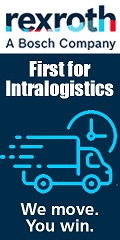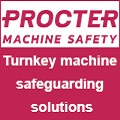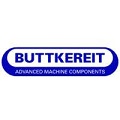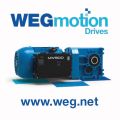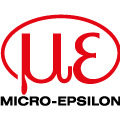
Posted to News on 11th Jan 2017, 15:56
Pacepacker forecasts the next packaging automation trends
In the last decade the packaging industry has profoundly altered. External market forces have projected robotics and automation into mainstream manufacturing, with labour efficiency and productivity, implicit in Pacepacker Services earlier work, continuing to be a key driver. The automation specialist's Commercial & Information Systems Manager, Paul Wilkinson looks back on recent packaging developments and shares his predictions for the next decade.
With technology advances and industry innovations, robotics and automation have become more commonplace among small and medium-sized manufacturers, and this is enabling them to compete in broader markets. Industry experts attribute this boom to three key factors - factory modernisation, increases in production capacity, and rising demand from a number of emerging markets.
Over recent years, innovative packaging machine designs incorporating mechatronic systems have inspired a culture of packaging machinery builders to combine functions once considered the domain of standalone systems. Now, robotics can be integrated and bespoke automated systems developed to accommodate package designs and product mix in ways unachievable a generation ago.
The rise of online shopping and e-commerce underpins a fundamental shift how items are packed and distributed. Given that internet shopping really came of age a decade ago, the role of packaging has inevitably altered. British shoppers now spend almost 1 in every 5 of their shopping via the internet, and recent surveys indicate that by 2018 online shopping could be worth 645bn in the biggest four markets of UK, US, China and Germany.
One of the leading deterrents for customers shopping online was the long waiting times from when the item is originally purchased to when it is received. Manufacturers have realised that by automating the order fulfilment and packing process they meet consumers' online expectations, particularly in relation to the logistics operations. Automation enables warehouse operatives to accurately pick, pack and distribute stock much faster and achieve their delivery targets, which in turn instils greater confidence among consumers.
We have also witnessed a major shift in the food sector. In an effort to reduce food waste, rather than big weekly shops, almost half the nation is now more inclined to shop for recipe ingredients when they need them. With emerging markets like dinner subscription services really taking hold, food suppliers are exploring pick and place and packing systems to ensure consumers have access to the freshest, most seasonal produce.
Accuracy, speed and assurance
In particular, meat and dairy products need to be picked, packed and delivered on the same day, so manufacturers are increasingly switching to automated systems for accuracy, speed and assurance. We are witnessing a definite increase in these companies coming forward, and Pacepacker's current mission is to try and educate this new breed of customer to show them what is achievable through automation.
To heighten awareness of what's feasible, Pacepacker, in collaboration with control and automation component provider Festo, recently launched a series of automation workshops focusing on how packers can integrate systems and extract full benefit from them quickly and efficiently.
In order to be more responsive, processors and packers are again turning to technology. Pacepacker's award-winning Mixed Tray Loader is a classic example of how the company acts on retail trends. It enables companies to generate mixed product trays and pallets, giving space-limited retailers the chance to stock an array of produce on one shelf and reduce stock holding.
While high-speed, accurate and agile systems are all key benefits of automation, the most recent demands from producers relate to food safety and the use of robots to maintain hygiene standards during the manufacturing process. Today, IP67K-certified robots are commonplace and are capable of operating in high-pressure, high-temperature wash-down environments, meeting individual Retailer Codes of Practice (COP) and the latest hygiene and product line integrity requirements set out by the British Retail Consortium.
Likewise, vision systems today are much more intelligent, not just checking for problems up and down stream, but also undertaking regular quality checks to ensure a label is in place correctly.
Motion control has also undergone significant system developments, and a lot of this correlates to advancements in Smart Manufacturing and Industry 4:0. Human/machine interfaces (HMIs), sensors and motion-control devices control, monitor and improve the efficiency of the machines on a packaging line. Motion control can be provided via complex motion co-ordinators, allowing full interpolated path control, right down to point-to-point pick-and-place for the simplest and most cost-effective systems.
For the FMCG market, automation is now viewed as a distinct competitive advantage and a business necessity. Given the speed in which tastes and shopping habits change, agnostic equipment buyers need assurance that the automation package specified can be adapted. Most robotic systems can store as standard a range of different programs for different applications - 25 to 50 is typical - and these will cater for the foreseeable needs of most users, including evolving packaging trends.
Flexible packaging, sustainability and smart labelling
Aside from freshness, it is anticipated that product personalisation, flexible packaging, sustainability and smart labelling will lead the most disruptive packaging trends in the next 5 years. Likewise, we anticipate seeing new packaging formats emerging, especially convenient single-use packets.
Flexible packaging, such as pouches, are likely to overtake more rigid packaging, such as jars and cans, in the next decade, with research by Canadean estimating 786,095 million units of flexible packaging will be used in global retail food markets by 2018. Providing new procedures and recycling methods succeed, their growth will continue at an advanced rate. In anticipation of this, Pacepacker designed the Shingle Tray Loader (STL). It features an end effector that can handle any type of fresh and ambient form, fill and seal packs and can stack a variety of pouch sizes, vertically or horizontally into trays, crates and boxes without having to change the tooling.
Sustainability has also been cited as one of the key trends over the coming years. In its strictest sense sustainability is about the endurance of systems and processes. Naturally, the longevity of equipment is vital, coupled with a quicker return on investment. But when you drill down into what sustainability means for the fast-moving food market, it is about adaptability.
Machinery-wise, there continues to be an emerging requirement for multi-functional and flexible equipment that can easily be reconfigured. Pacepacker has witnessed a definite shift from single-use systems built for a specific application to perform a set task, to robotics, which can easily be reprogrammed and redeployed to do a different job. The company is also seeing an increase in the number of companies taking the packing operation of its products in-house, rather than using contractors, to drive down costs and give them ultimate control. As a consequence these companies are more likely to invest in the process and packaging equipment.
Whatever packaging trends are on the scene or about to emerge, the robot revolution looks set to stay. Today's generation of automated pick-and-pack systems are flexible enough to adapt to changing consumers patterns and preferences, which in any FMCG sector is the mandate for success.
More information about Pacepacker's products and services can be found at www.pacepacker.com.
X
X
GLOBAL



